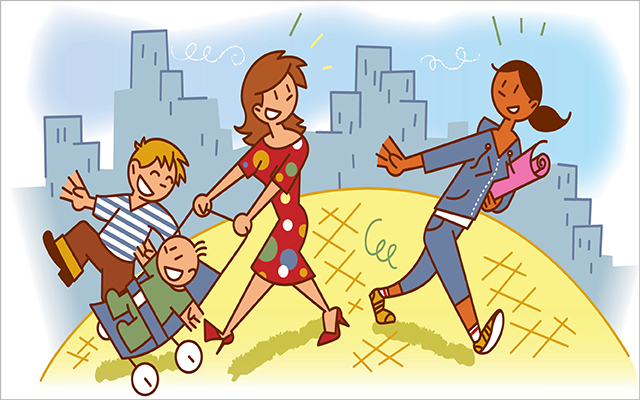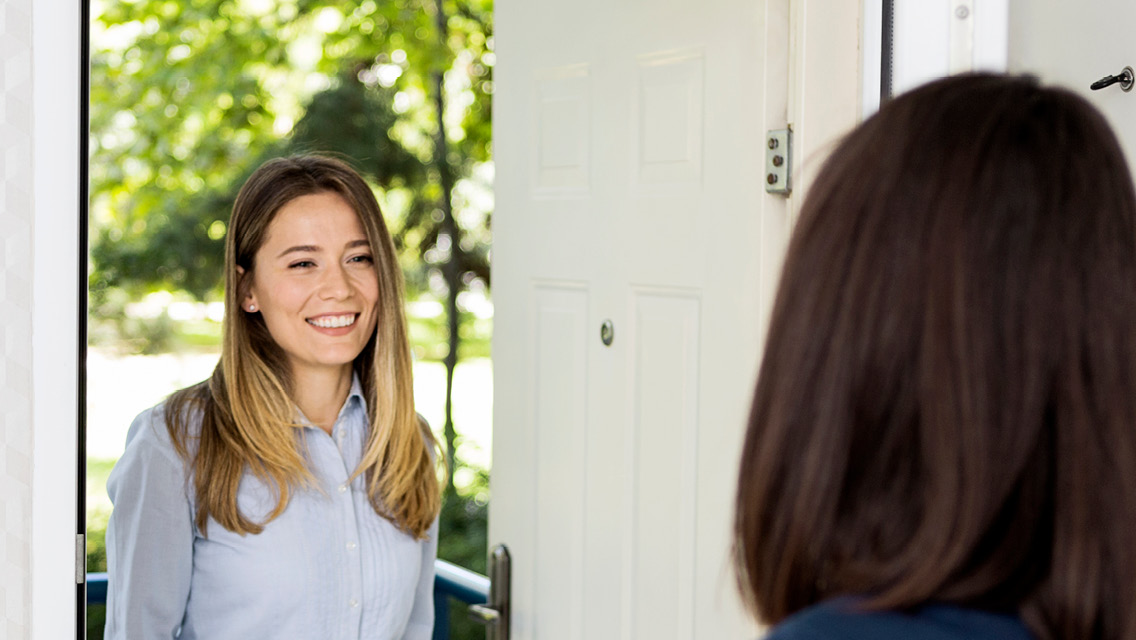When Kirsten Olson’s dear friend, Brenda, had her first child, things changed between them. They lost touch.
“She suddenly had other worlds,” says Olson, now 48 and living in Burnsville, Minn. “When she had kids, she met new friends.”
The loss wasn’t easy for Olson, but it didn’t surprise her. Most adults experience a similar break at some point — and it stings for both sides.
Adults without children generally understand that their friends’ transition to parenthood is epic, says Laura Scott, founder of the Childless by Choice Project and author of the book Two Is Enough: A Couple’s Guide to Living Childless by Choice. Yet she says that understanding “doesn’t mean it doesn’t hurt to lose your best friend.”
New parents, meanwhile, are often overwhelmed by the fact that their lives have changed so much they feel unrecognizable. John and Stevie Kinnear of Sandy, Utah, had their first child in 2010, and John, 32, says that first year was like going into hibernation.
“It was all consuming and it became everything we were for a year,” says Kinnear, author of a blog called Ask Your Dad. “Everything I did I saw through the lens of being a parent. If I did get out to see my friends, I just talked about my kid or being tired from my kid. It’s not that it wasn’t a valid topic, but it was such a sudden change. I think a lot of my friends had trouble adapting to it — and I think I was kind of oblivious.”
Stories like these are common. Friends retreat into different camps when one has children and the other doesn’t. There are ways to protect friendships during and beyond this transition, though. Understanding each other a little better is a good place to start.
Choosing a Path
Parenthood is a serious undertaking, and it’s not unusual for new (and not-so-new) parents to presume their friends remain childless because of career ambitions or other apparently selfish reasons. Such judgments make closeness difficult.
According to Scott, there are a variety of reasons people don’t have children. Many childless adults endure fertility struggles and miscarriages in private. Some can’t afford adoption or don’t feel it’s right for them.
Conversely, parents sometimes take a pitying view of adults without children, assuming they wanted kids, when they simply didn’t.
Typically, this isn’t because childless adults don’t like kids — another common misconception. Scott surveyed hundreds of nonparent adults and found that a majority of them truly enjoy children.
“I was amazed by how many child-free people had chosen to be teachers. I found child advocates, day-care workers, and people who are mentors for children and youth — myself included,” says Scott.
And many nonparent adults take their roles as aunts and uncles (whether biological or appointed) seriously. “A number of them have told me that they use their disposable income to help with college costs or other things that parents may not be able to afford for their children,” she says.
Staying Close
By the time Kinnear and his wife had a second child, they had learned more about protecting their friendships. “Our friends without kids love our kids, too, and we try to involve them,” he says. “And we want to be sensitive to the fact that their lives don’t revolve around kids.”
So they’ve changed some things — for example, the way they throw parties. To balance kid-focused birthday celebrations for toddlers, the couple hosts the occasional barbecue for parent and nonparent buddies. They also want quality time with adults outside the house, so they go on what they call “expeditions.”
“You have to go out into the world and see people. If we just waited for special events, we’d only see our friends once a year,” Kinnear says.
Sometimes maintaining connection is as simple as finding a new routine. Olson has been close to her friend Ann since high school. When Ann had two kids in her early 20s, she and Olson had fewer nights out, but they regularly went to each other’s houses and out for lunch.
“We called each other a lot. We talked often,” says Olson. She also babysat, changed diapers, and took Ann’s kids to playgroups and on walks. That was helpful, not only to her friend, but also to Olson herself.
“Having kids in my life is such a good feeling,” she says. “It lifts my spirits.”
As for staying connected with Ann, it’s not that complicated. “We make the effort,” she says. “That’s the bottom line. Both people have to make an effort.”
Take the Long View
For her part, Scott says she lost touch with both of her best friends — one from high school, the other from college — when they started families.
“They went off the radar as they were raising their children,” she says. Still, she was able to reconnect with both of them later on.
Friendships change when someone has kids, but that doesn’t mean the relationship is over. Even if you can’t still go out to late-night shows or take early-morning runs, there are ways you can stay in touch. Catch up on the phone more often. Send email updates. Have a monthly breakfast. Maintaining some contact will make it easier to reconnect when kids get older and schedules loosen up. And that will happen faster than you think.
Today, Scott is making new friends in her Tampa community as neighbors become empty nesters. She finds that people want to rejoin the no-kids-in-the-house tribe after their kids head off to college.
“That’s been a nice thing to see as I get into my early 50s,” says Scott. “I have a lot of friends who are parents, but they are empty nesters now. They’re ready to get back into it.”
How to Stay Connected
A few strategies to stay close to your friends when one of you has kids.
- Go out. Parents: Plan a child-free evening each month. Hire a babysitter, or trade off staying in so your spouse can go out. Friends: Offer to babysit. You’ll support your parent friends, and get to know their kids independently.
- Be curious. Know and remember the details of each other’s lives. Ask questions and stay current on what’s important for your friend. Make the effort not to talk exclusively about any one topic, tempting as it may be. The friend who talks only about her kids is as tiresome as the one who talks only about her job.
- Avoid comparing stress. No one likes to listen to complaints for an entire conversation. While you both surely have legitimate gripes, and parents who are with children all day might feel especially stifled, try to avoid using time together purely as a grousing session. You’ll get as much relief — and more connection — by focusing on things that interest you both.
This article originally appeared as “Hello, Baby. Goodbye Friend?” in the March 2014 issue of Experience Life.




This Post Has 0 Comments